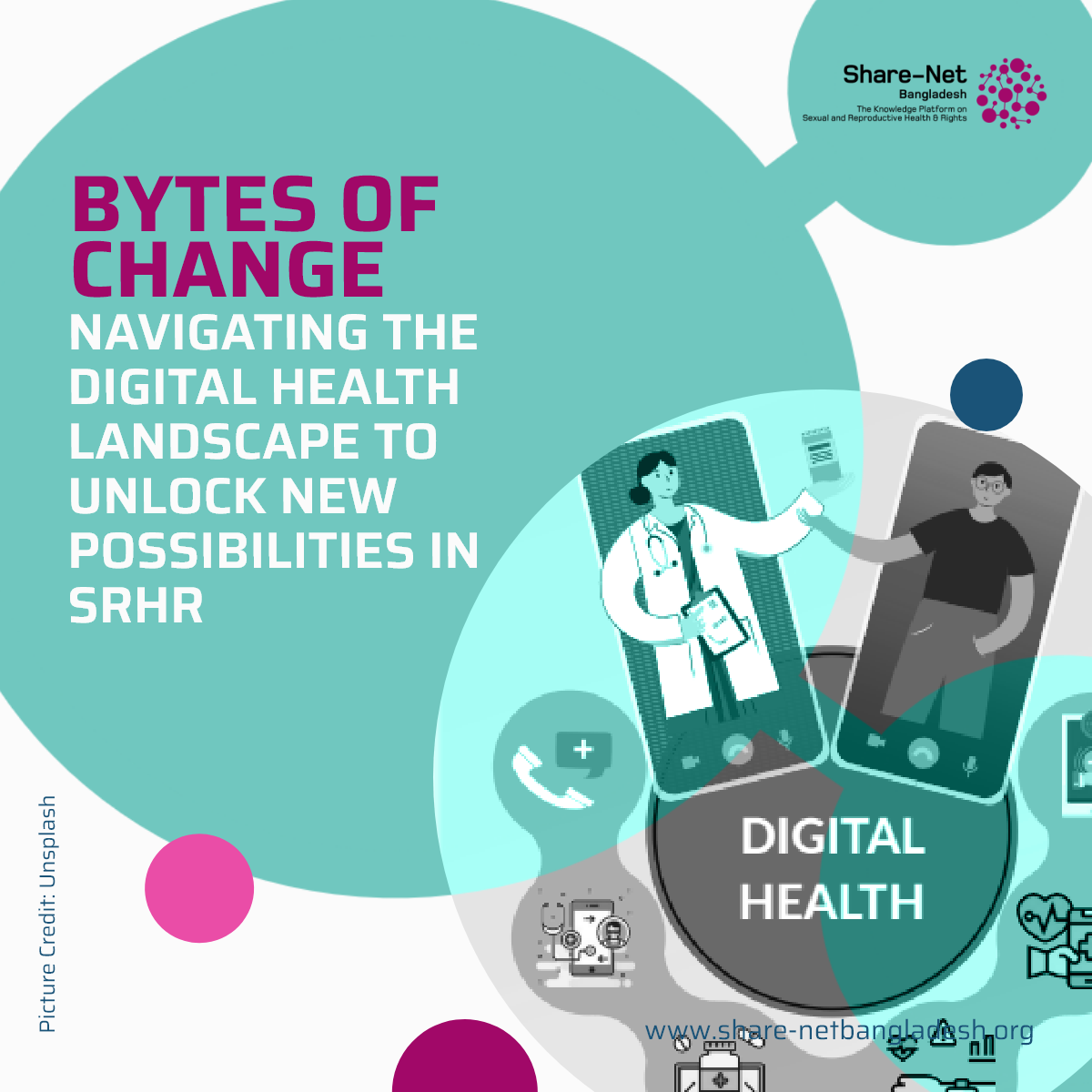Bytes of Change: Navigating the Digital Health Landscape to Unlock New Possibilities in SRHR
The rise of digital health platforms in Bangladesh, spurred by the COVID-19 pandemic, marks a significant step towards health digitalisation. However, this shift has also exposed vulnerabilities, particularly in sensitive fields like Sexual and Reproductive Health and Rights (SRHR). Adolescents and young adults, aged 15-30, remain at the forefront of this transition, encountering difficulties in accessing accurate and reliable SRHR information.
A recent study conducted across Dhaka Metropolitan City, Savar, Narayanganj, and Tangail revealed that 38.9% of respondents routinely double-check health information they receive from digital platforms, underscoring their trust issues. “We don’t trust unfamiliar health providers online,” said Selina, a 34-year-old slum dweller from Dhaka. “If I knew how to trust doctors online, I would avoid the hassle of visiting a clinic. But right now, I rely on nearby doctors I know.”
This mixed-methods research aimed to dive deep into understanding the challenges faced by young adults when using digital platforms for SRHR services. The findings present a nuanced picture of digital health adoption and user experiences, highlighting the complexities of integrating technology with health services for marginalised and underserved communities, such as persons with disabilities and gender-diverse populations.
Despite the growing access to smartphones and the internet, many young users still hesitate to trust digital health services. A member of the gender-diverse community, aged 25, shared, “Doctors can’t diagnose everything online. One of my relatives got worse after using online treatment. He ended up in the hospital with a serious kidney issue.” This reflects a larger concern that proper diagnosis and treatment may be difficult through digital platforms alone, especially for SRHR and related health issues that require physical consultation and detailed interaction with a doctor.
In this environment, misconceptions and misinformation surrounding SRHR, particularly around mental health and sexual wellness, are rampant. Misleading content related to herbal and homeopathic treatments is frequently promoted, while dangerous myths—like the idea that excessive masturbation alters the shape of the penis—still circulate widely.
The issue of misinformation is exacerbated in SRHR, where stigma and social taboos already limit open discussions. The study found that 54% of respondents often verify information by consulting friends or peers, while 40.1% consult real doctors, indicating that trust in digital platforms alone remains weak. This highlights the need for more transparent, reliable, and accountable digital health services, specifically catered to young users seeking SRHR guidance.
The research points to the need for policies that not only promote digital health platforms but also ensure their reliability and user-friendliness, particularly for marginalised groups. By aligning digital health strategies with the specific needs of young people, especially in SRHR, Bangladesh can develop a more equitable and inclusive digital health system.
This can only be achieved by incorporating feedback from a broad range of stakeholders—policymakers, health providers, civil society organisations, and most importantly, the users themselves. Creating a sustainable digital health environment requires breaking the current cycle of mistrust, addressing the widespread misinformation, and developing services that prioritise transparency, accountability, and inclusivity.
As Bangladesh navigates its digital health journey, it must focus on building trust, ensuring the accuracy of SRHR information, and catering to the needs of all users, including marginalised and gender-diverse communities. By addressing these issues, the country can pave the way for a future where digital health platforms effectively serve the SRHR needs of its young population, creating a healthier, more informed society.
Read full report: https://resource.bracjpgsph.org/assets/front/pdf/resource/infographic/CLEAR-Infographic_Digital_Health_4_Dec%20_2023.pdf
Source: BRAC JPG SPH
Picture Credit: BRAC JPG SPH

